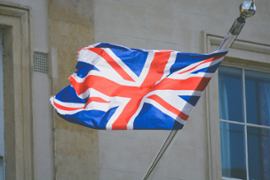Summary
- A heartfelt letter calls on Rachel Reeves, the Chancellor of the Exchequer, to seriously consider increasing taxes on remote gambling, emphasizing sports betting and online casinos.
- The letter passionately calls for prudence and strongly opposes HM Treasury's plan for a uniform gambling tax, arguing that it overlooks the varying levels of risk and harm associated with different gambling products.
- The letter passionately asserts that the government must prioritize both fiscal responsibility and social justice.
As November's Autumn Budget looms closer, whispers grow louder that Chancellor Rachel Reeves might adopt a tougher approach on gambling by increasing the industry's existing levies.
Autumn Budget another chance to tax riskier verticals in gambling
Dr. Beccy Cooper and Alex Ballinger, alongside over 100 of their Labor Party colleagues, are urging for a transformative change in the Autumn Budget. They demand the introduction of a targeted levy specifically on detrimental online gambling products, rejecting the idea of treating these activities uniformly due to their distinct differences. Their letter shines a light on certain gambling activities they view as particularly exploitative and harmful. While acknowledging HM Treasury's existing efforts, the signatories express concern that the proposals fall short of achieving their intended impact. They highlight: We recognize HM Treasury’s recent consultation aimed at unifying the tax treatment for remote gambling under the Remote Betting and Gaming Duty (RBGD). However, by focusing solely on structural uniformity, this plan risks ignoring the critical differences in the potential harm posed by various gambling products. Our proposal charts a different path. The core argument is clear: not all gambling activities carry the same risk or harm, and failing to address these differences could lead to unintended consequences. A uniform levy might inadvertently undermine lower-risk activities, pushing consumers towards offshore options, a shift the signatories warn against. It's striking that the UK currently taxes some of its riskiest gambling activities, such as online casinos and sports betting, at rates lower than many other countries, raising questions about the true commitment to safeguarding consumers.
Levy harmonization is not the best approach, warns Labor MP
Drawing on lessons from the United States, Austria, France, and the Netherlands, the letter emphasizes a pressing need for the UK to rethink its lenient tax on online gambling. The moment to act is now. The letter points out that the Institute for Public Policy Research (IPPR) Commission on Health and Prosperity has put forth a bold proposal: increase the Remote Gaming Duty from 21% to about 50% and raise the General Betting Duty from 15% to around 30%. IPPR estimates these changes could generate roughly £2.9 billion in the first year, climbing to approximately £3.4 billion by 2030. Alternative suggestions also received acknowledgment in the letter. Yet, the letter voices strong support for the British horseracing industry, stressing its cultural and historical significance. It warns that increasing tax on this sector as part of a blended levy might compromise its integrity without meeting the intended goals. Proposing an online gambling levy that balances profit and harm, the letter asserts that this could provide a credible, fair, and immediate revenue stream. Such a move would demonstrate a government genuinely intent on marrying fiscal responsibility with social justice, showing a commitment to fighting poverty not just through rhetoric, but with decisive action. The letter calls for this proposal to be a focal point in the Autumn Budget.





























